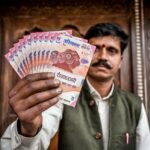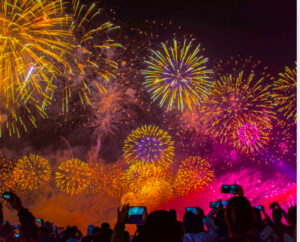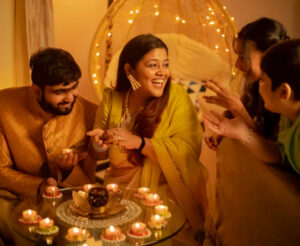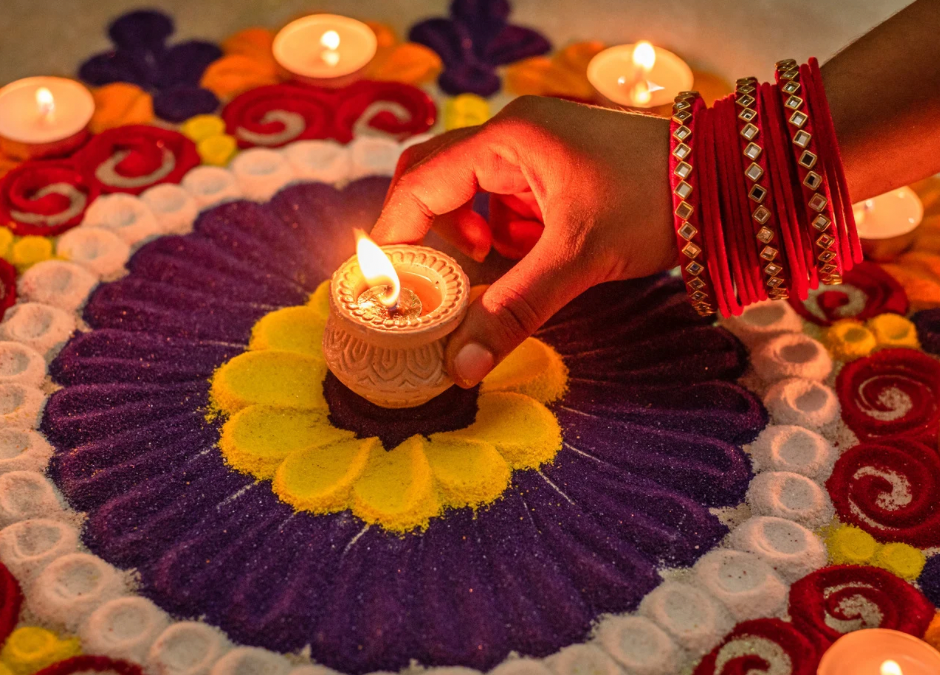
SUPREME COURT’S VERDICT ON ELECTORAL BONDS
November 2, 2024
The Future Lawyer Weekly Briefing – W/C 4th November 2024
November 4, 2024By Dikshya Adhikari.
Reading time: four minutes
Introduction to Diwali
Diwali, popularly known as Deepavali, is a vibrant festival celebrated by millions across the world, especially in Nepal and India, though the joy of it has crossed borders. For those who do not know about this joyful festival, Diwali is a festival that epitomises the victory of good over evil. Conventionally, it holds great importance in Hinduism, as well as in Sikhism and Jainism, due it being an intense celebration of spiritual rejuvenation.
Hope is essentially the philosophy on which Diwali revolves. It is preceded by the lighting of oil lamps, offering a set of prayers, and distributing sweets among family and friends. Legends often vary from culture to culture but are usually based on heroic figures such as Lord Rama, who returned home after defeating the demon king Ravana, or Lord Krishna, who defeated the demon Narakasura. These tales remind one that no matter how sad and unjoyful life may get, light will always prevail.
Diwali in the UK
Diwali has left a mark in the UK, and it is widely celebrated. Historically, the celebration of Diwali in Britain dates back to the mid-19th century when migrant South Asian communities came, though it was not until the 1980s and 1990s that Diwali acquired the status of a multicultural event, as noted in such cities as London, Leicester, and Birmingham. Large Diwali events are organised in these cities, which account for the various cultures that make up modern Britain.
Local councils and community organisations have been instrumental in promoting these Diwali events. The revelry of colourfully decorated parades with music, dancing, and fireworks serves to create a sense of community and belonging. All these societies speaking as one can be termed proof of the bonding that exists in respect for human culture and tradition. For this reason, Diwali is no longer solely a South Asian festival but an important landmark in the British cultural calendar, placing it in the mainstream of life in Britain and appealing to people from every walk of life.

Promoting Diversity Through Diwali
One of the most beautiful things that Diwali has is the way it celebrates diversity. This festival provides an avenue for the cultural values and traditions of different communities to be showcased. Non-Asian groups also participate in Diwali festivities with enthusiasm, which just goes to say what is always meant by the spirit of unity and inclusivity defining the celebration. Whether through local schools, community centres, or workplaces, Diwali encourages cultural exchange and education.
For instance, schools organise Diwali events, usually centred on learning about the history and importance of this festival, no matter the background. Such interaction helps in building mutual respect and understanding and smoothes the path toward a better society. The charm of Diwali is that it crosses cultural barriers: everyone gets involved in the celebration.
Fostering Inclusion and Unity
Diwali is a perfect example of how festivals can bring together disparate cultures and religions. During the period of Diwali, communities are brought together under one umbrella of reveling in light and joy. Schools, universities, and local councils take Diwali as an opportunity to teach about cultural heritage and values. In fact, educational institutions push students to investigate what diversity really means and contribute to raising a generation respectful of differences.
Then there is the corporate Diwali, which has also encouraged a better workplace through the facilitation of understanding. They provide an opportunity for employees to interact in cross-cultural discussions at work, thereby helping to dissolve inhibitions and connect with their colleagues.

Impact on British Society
Beyond fostering cultural appreciation, Diwali has a positive economic influence on British culture by boosting local companies and tourism. As shops offer exclusive discounts on sweets, decorations, and traditional clothing, markets are a hive of activity. In a multicultural culture, where festivals may boost local economies and promote social cohesion, this economic component is crucial.
Diwali’s importance in the national narrative is further cemented by British institutions’ recognition of it. Diwali’s significance within the fabric of British diversity is shown by occasions like the annual Parliament lighting ceremony, where the building is illuminated to commemorate the holiday. These kinds of actions foster a feeling of community and show respect for many cultures.
Challenges and Opportunities
Despite the benefits of celebrating Diwali, fostering inclusivity can be challenging. Stereotyping and tokenism are potential issues, especially if the event is reduced to superficial cultural displays with no deeper knowledge of its meaning. It is critical to approach Diwali with honesty and respect, ensuring that all voices in the community are heard and recognised.
However, these challenges also provide opportunities for increased integration and cross-cultural understanding. Open discussions about cultural customs and beliefs can help communities connect more deeply. The media’s role in depicting Diwali as an inclusive celebration is critical since positive portrayals can help challenge prejudices and foster a true appreciation for cultural variety.
Finally
Diwali is a symbol of optimism and unity in the UK, encouraging diversity and inclusion. Its significance extends across cultural boundaries, encouraging people to band together in celebration of shared values. By embracing the spirit of Diwali, we not only honour the rich traditions of many groups, but also set a precedent for future multicultural festivals and festivities.
As we light our diyas and distribute sweets, remember that Diwali is more than simply a celebration; it is an opportunity to instil empathy, respect, and understanding in our ever-changing society. So, whether you’re a seasoned celebrant or new to the event, participate in the fun and let the light of Diwali guide us to a brighter, more inclusive future. As the proverb says, “When the light shines, the evil fades away.” Let us be a part of that light.





